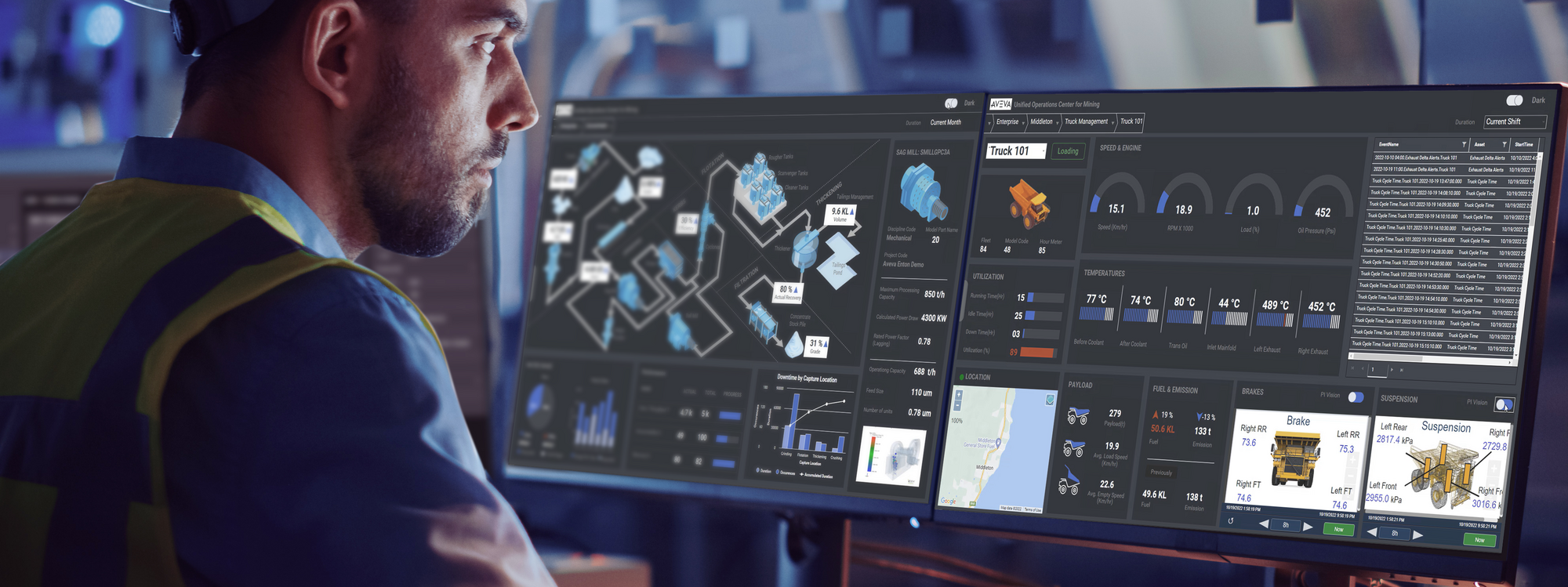According to AVEVA's global industry principal for mining, metals and minerals, Glenn Kerkhoff, the mining sector is facing a number of challenges, of which electrification is only one.
"We have identified several key challenges," he said. "The first is around digitalisation in mining. Our research shows that 49% of top executives at global mining and metals companies say they need to include automation and digital goals in their long-term corporate strategies."
Added to that is the issue of recruitment. AVEVA has identified that 70% of 15-30-year-olds said they would "probably not or will not" consider a career in mining. This is the highest proportion of all industries. At the same time, 35% of mining company chief executives said their companies will be "highly or extremely" exposed to climate risk over the next five years. Meanwhile, 74% of mining and metals executives said that integrating technology is one of their key challenges.
To address these, AVEVA sees the mine of the future as being highly digital. AVEVA provides operational technology, data analytics, simulation tools, predictive tools and other tools to help support the industry during this time of transition. Kerkhoff said he believes that these technologies not only help with operational issues, such as optimising fleets, but could also change the perception of the sector amongst young people.
"We need to attract new people into the industry," he said. "Topics such as artificial intelligence (AI), data analytics and simulation are very appealing to some of the next generation of our prospective workforce." Not only can these technologies help reduce carbon emissions, he said, but automation allows for remote operation of mines, making the job a lot safer. Increased electrification of fleets can support this by showing this generation that an effort is being made to reduce emissions.
AVEVA has separated the digital mine into four life phases. During the first, when a mine is initially being designed and set up, there is a role for digital twin modelling to test that the infrastructure, plant and equipment such as electric trucks will work. In the second, during the start-up of the operation, data collection, integration and connectivity throughout the mine, and virtual/augmented reality for training purposes are important technologies. Remote operating centres can also play a role.

Thirdly, as the mine ramps up to full production, along with automation and robotics, predictive maintenance ensures that the reliability and availability of the equipment in the plant is at the optimum level. Finally, Kerkhoff said, there is a phase of "continuous improvement and optimisation".
"This is what we call ongoing optimisation," he said. "This includes running an optimisation of the operations on a real-time basis using things like cloud-based data analytics and AI for decision-making and ensuring that we have a collaborative ecosystem of partners and customers for data-sharing."
To get there, AVEVA has a suite of tools to support the sector on its digitalisation journey. They include the Unified Engineering platform, which is a single data-centric platform that enables collaboration across various projects. The AVEVA PI System collects, aggregates and enriches real-time operations data for immediate problem-solving and advanced analytics. The Predictive Analytics tool uses AI to forecast remaining asset life, reduce unplanned downtime and lower maintenance costs. The Production Management tool collects data from the movement of material through the mine into the processing plant and then on to the port or metallurgical plant before it is transformed into a finished product for the customer. Meanwhile, a tool called Connect is a cloud data management service for sharing industrial data.
"One of the core benefits our customers experience is optimising the energy balance," Kerkhoff said. "They can minimise the amount of energy they use or balance that use between different energy sources, which is crucial for the reduction of greenhouse gases." No less crucial, he said, is the ability to improve operations, using equipment more efficiently and deploying automation where appropriate.
"Safety is a key issue," he added. "Removing people from harm's way is one of the fundamental ways to improve this. We can also look at the data associated with the operation of the plant and equipment to identify any unsafe situations," he said.
When companies want to reduce emissions and change the way their operations work for the future, it can be difficult to know where to start. "At AVEVA, we recommend that you put in place a solid and robust infrastructure that will allow for different types of data to be imported and analysed to provide different efficiency gains," Kerkhoff said. The company works with customers to analyse their current situation and put together a phased roadmap. "You can start the journey now, rather than try and do it all at once," he said.























